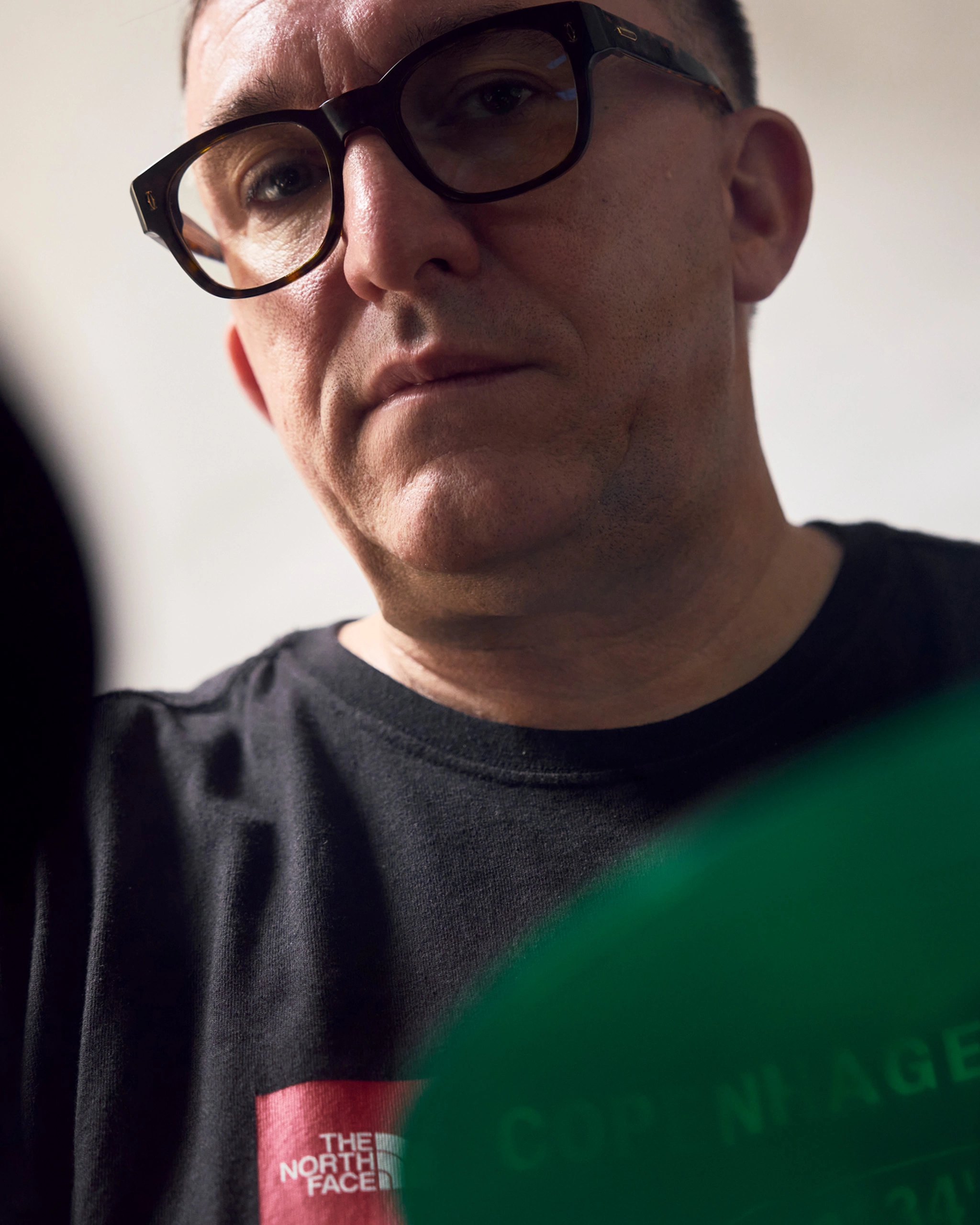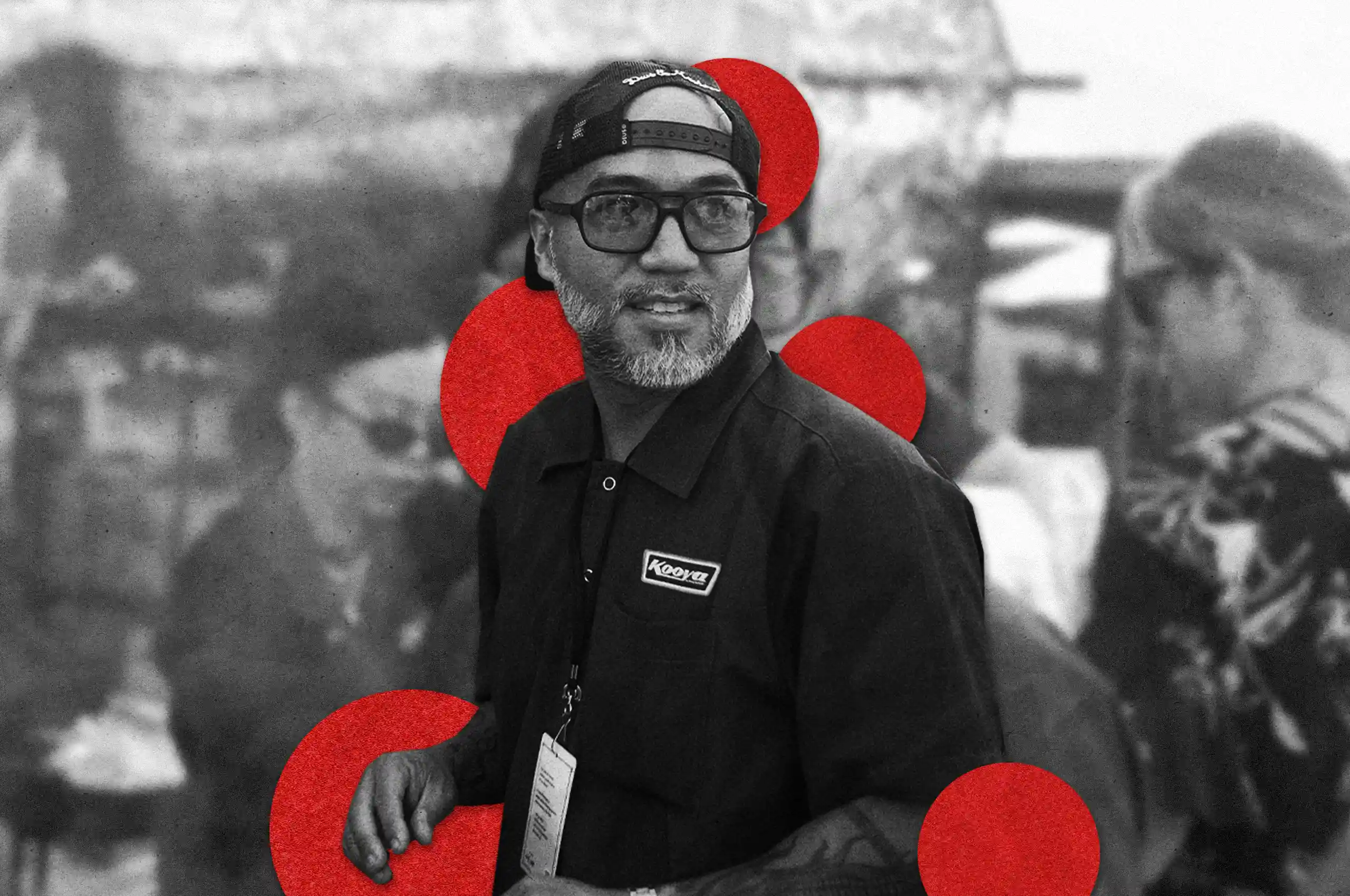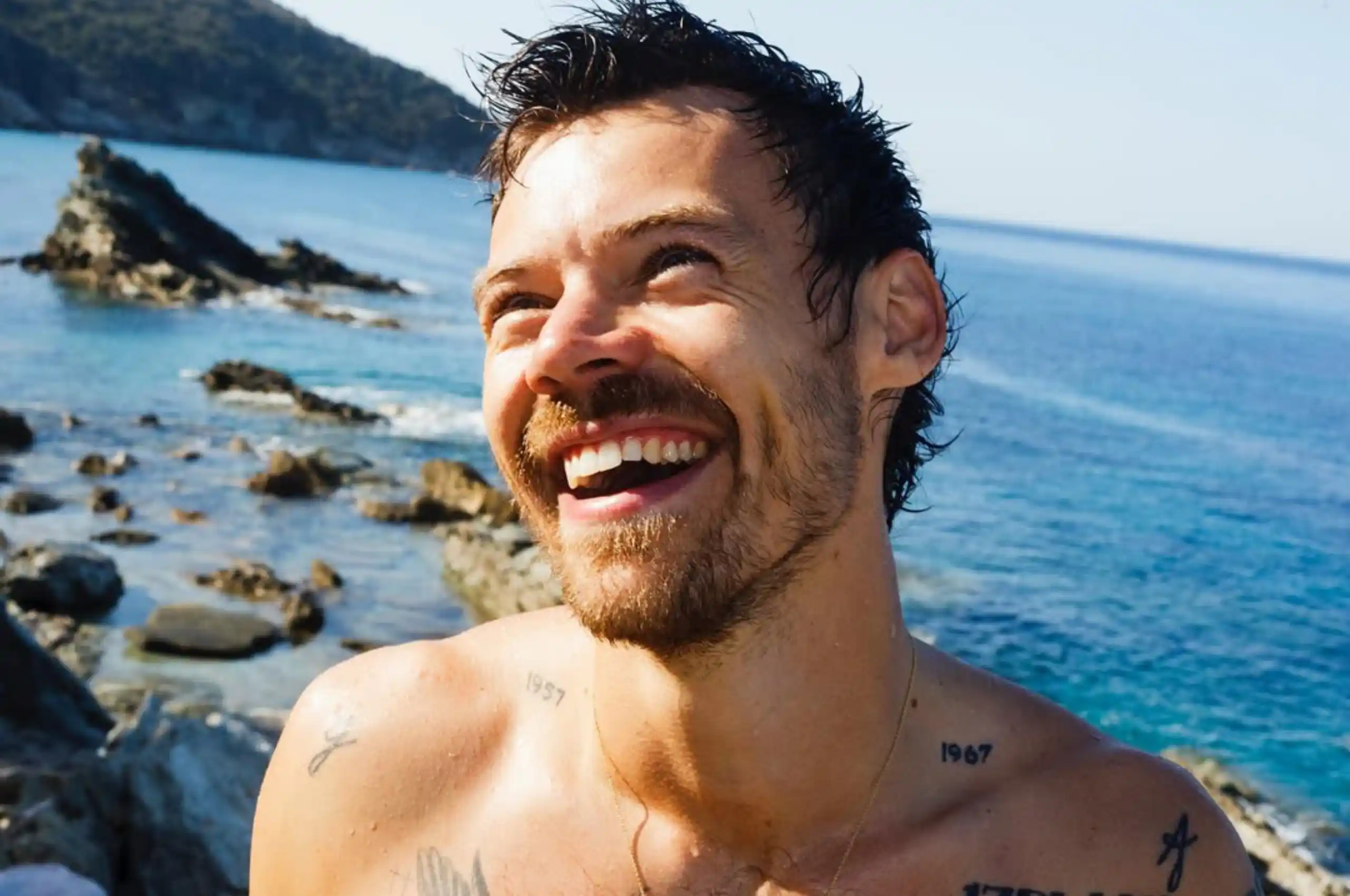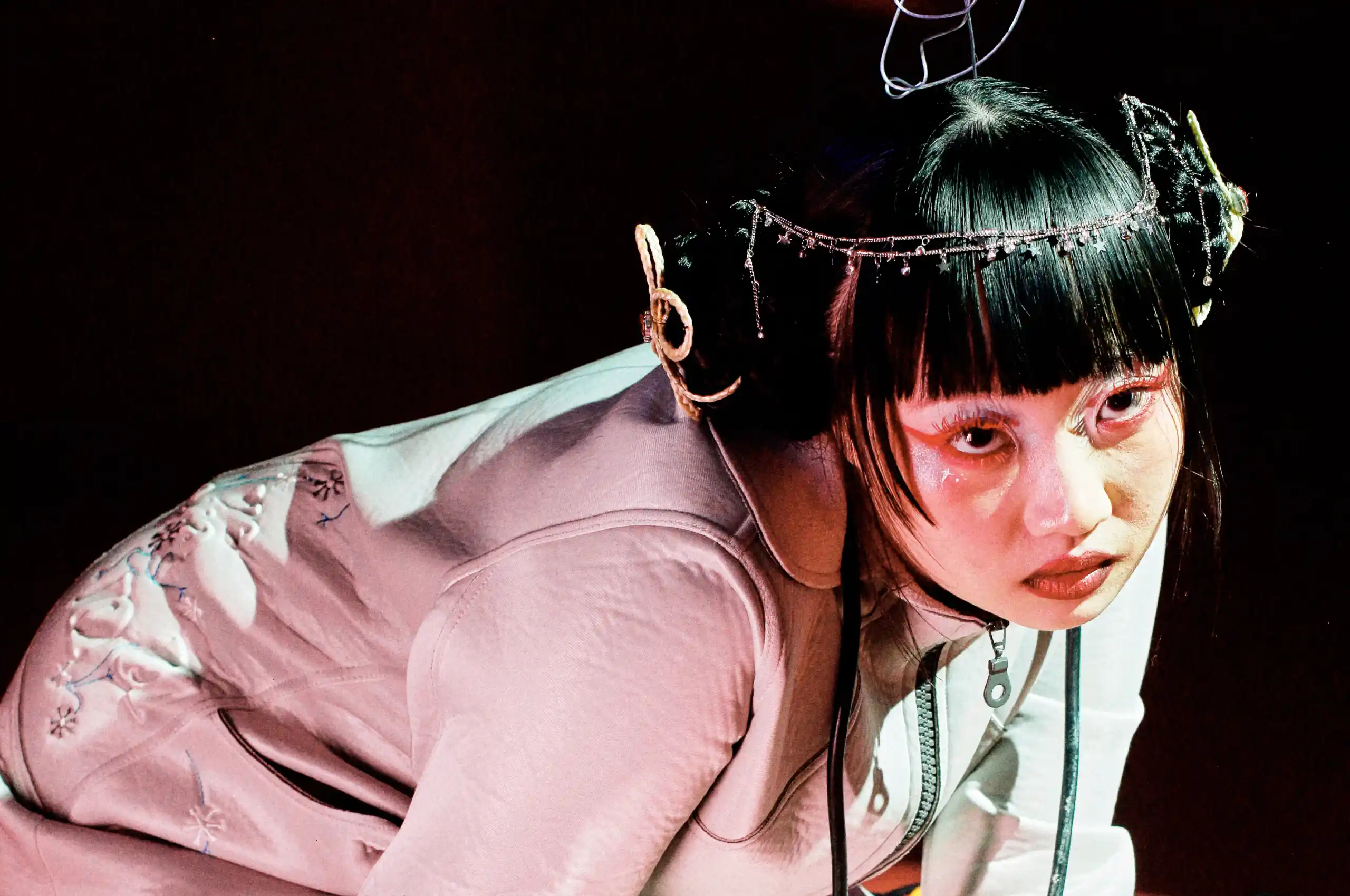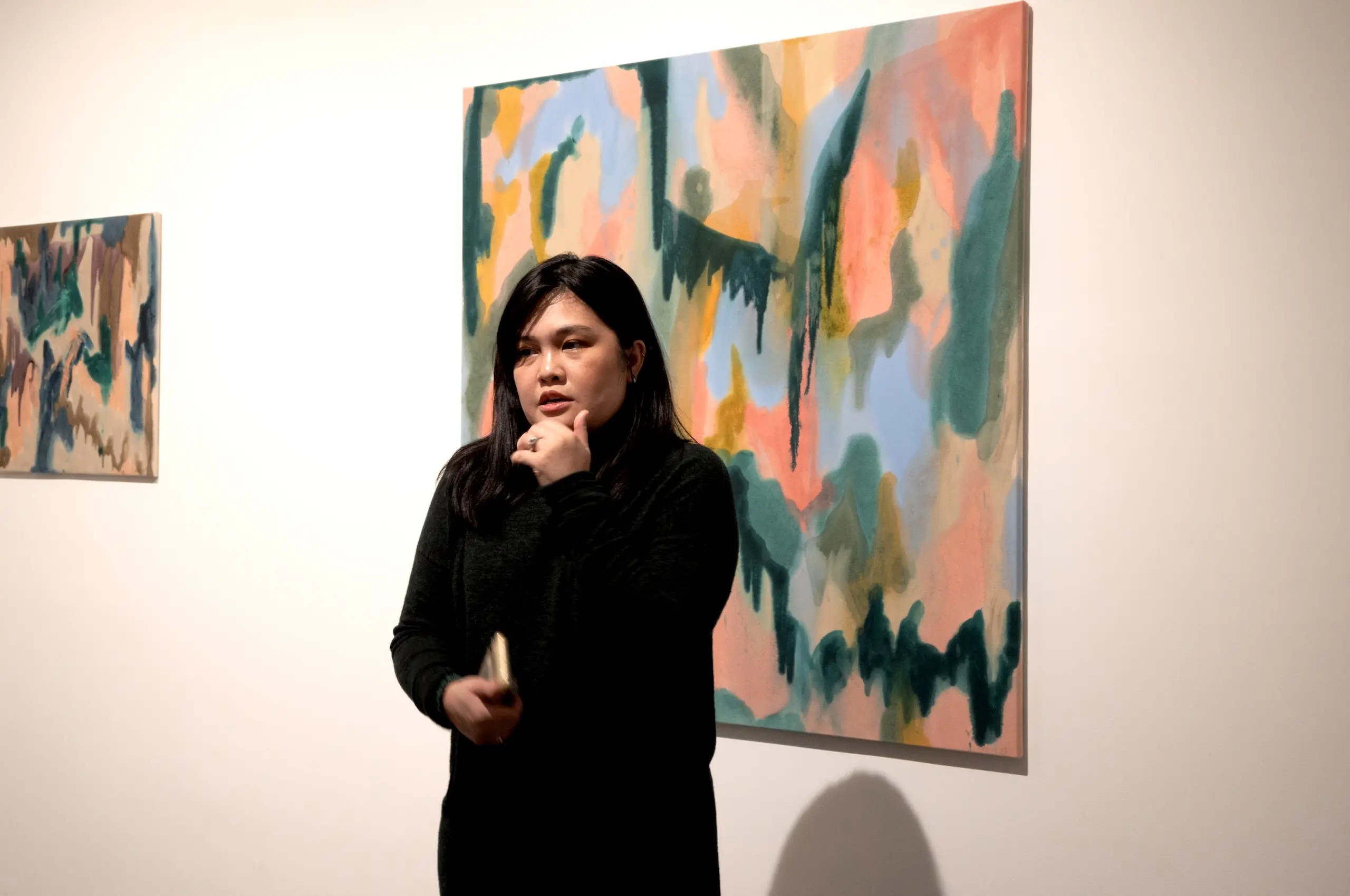It won’t take long to find out why Chele Gonzalez is one of Manila’s well-known and respected chefs. Gallery by Chele, formerly Gallery Vask, has been a mainstay in the city’s fine dining scene for over a decade now. Since then, he’s expanded his empire with Cantabria in Ortigas Center, Samira in Tagaytay, Asador Alfonso in Cavite, and Deli by Chele in four malls around Metro Manila. His restaurants have been featured in numerous publications and garnered acclaim in and outside the Philippines.
But his story goes far beyond the kitchen. Before hitting it big as one of Manila’s top chefs, Gonzalez could be found behind a DJ booth, serving up rare and respected tracks for a dance floor hungry for an out of body experience.
“I think I’m a better DJ right now than before,” Gonzalez tells Rolling Stone Philippines. “I’m proud of who I am today in many ways, but, of course, it takes time. You have to work against yourself, you need to re-educate and not lose who you are.”
Ahead of the latest iteration of Medium Rare, Gonzalez’s latest project merging his passion for food and music, he talks about past lives, his thoughts on electronic music culture today, and how it isn’t just his escape but something that nourishes his soul.
This interview has been condensed for clarity and brevity.
A lot of the material about you online is about your food. DJing and music was always a footnote. Do you find that that story about you is incomplete at this point?
I left music out of my life for a while, for different reasons. But now, I think [I reached] a point of maturity in my career where I feel that, as a chef, I don’t need to demonstrate anything. I’m very confident in what I do.
Right now, I use music as a very spiritual thing because it reconnects me with parts of my past, but in a better version of how it used to be.
In what way is it better?
Music allows me to disconnect from the world because you can spend days or weeks to find a song, to really connect with the music. There are days I spend 30 minutes organizing and researching music. But there are days where I spend maybe six hours. During that time, I leave my stress, my work, aside. It’s time I decide to spend on myself.
I give time to my family, my job, my career, and my food, which I still love very much. But sometimes, you don’t give time for yourself.
In my sets, I always play at least four to 10 songs from the past; impactful songs that I believe are a very important part of the history of electronic music. It’s like ecstasy. You are connected with the people. I think what is happening right now in the Philippines in terms of electronic music is quite nice because people go to dance, listen, and [are] not so much on their phones.
When other DJs come here, they say, “Wow, you are lucky because you really have a pure part of the scene.” I think in Spain right now, [the scene] is corrupt in many ways.
Your relationship with music now is very spiritual, more connected with your leisure time as someone who works very hard. During the ‘90s, when you were in your 20s and starting out DJing, what was your relationship with electronic music?
It was a spiritual experience in a different way. I lived in a very special moment of electronic music because it was [just] beginning and [not many] people knew what it was.
I was obsessed with electronic music. In the beginning, it was more for the big spaces… It was more commercial. It was a mix of different kinds of electronic music, but it’s difficult to describe as one. They also call it “machine sound” in Spain.
“I think, you know, you cannot only have one face. You need to have different faces. [But] it depends. These days, house music sounds a little bit negative. But in my time, house music was so nice.”
You might disagree with me. But today, the idea of the “underground” is very flimsy to me because there are people who are still independent, but have some sort of commercial or overground sense to them that is rooted in the underground. I can imagine that, in the ‘90s, when the scene was still very young, there was a very distinct community that wasn’t part of mainstream culture. So, I’m curious to know: At the time in Spain, what was it that distinguished commercial electronic music from underground electronic music?
It was around 2000 that if you went to a club, the most commercial party will be [playing] commercial house. This is very important [to note] because I don’t think, right now, you can call the underground what it used to be. Before, you were really breaking with the society. But even though the music was a little bit more “commercial” or less commercial, I think both scenes were underground. Maybe it was about the quality of the music.
When you say commercial house, who comes to mind?
Armand Van Helden.
Yes. Very Miami.
It’s interesting because at that time, I would never play Armand Van Helden. It was a sign, a thing, [that pointed to] the commercial route in the ‘90s. It was a different genre. More commercial or more quality. But [electronic music], I think, was still underground.
Most people didn’t have access to it. So in a way, it’s underground.
The commercial house — it was a thing that people who work on quality, underground music would never play. People go out and they will listen to [commercial house] music because there was no other option. Many things that are cool now [were] at a different stage [during that time]. But things change, and people who didn’t live during that time cannot really visualize [how a] song was developed and launched to the public.
I think Spain [back then] was one of the most important countries for electronic music. Reggaeton came [in the 2000s] and there were a lot of connections between Latin America and Spain. They brought music with them, and it was more appealing to the young generations. The culture of electronic music was a little bit lost because of the impact of reggaeton in Spain. That was the time when something switched — from Spain, it switched to Berlin [as the capital of electronic music]. [That] started in the early ‘90s, it consolidated more in the 2000s.
Can you name some artists that you looked up at the time?
If I will go for the more underground, after hours [sound], [there’s] Octave One from Detroit [or] Peace Division, [tracks] that are a bit more heady, dark, and hypnotic because you are on something. You hear the music differently. The peak of techno was when [Juan] Atkins and Surgeon, all those people, switched from acid to techno. Electro came at that time, breakbeat came at that time. Everything was really new.
It was the beginning of everything. [It was] like, “Oh, I went to this club, I listened to this artist, and I never listened to this genre.” When I was playing music, it was sometimes from one record of only 500 copies in the world. So to be a DJ then, it was not about how technical you were; it was how respected you were to get that record. You have these records that nobody else had, and DJs would kill to have.
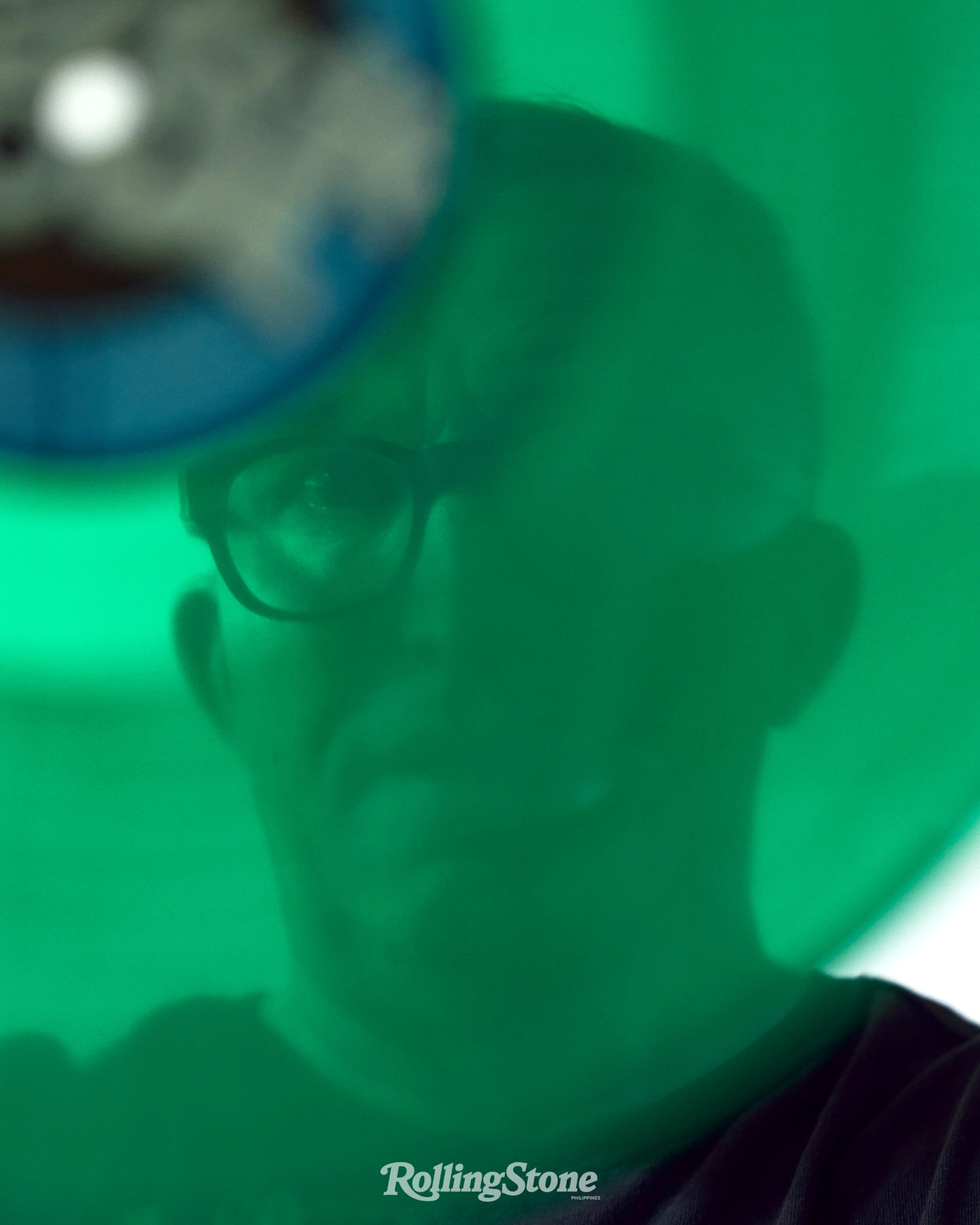
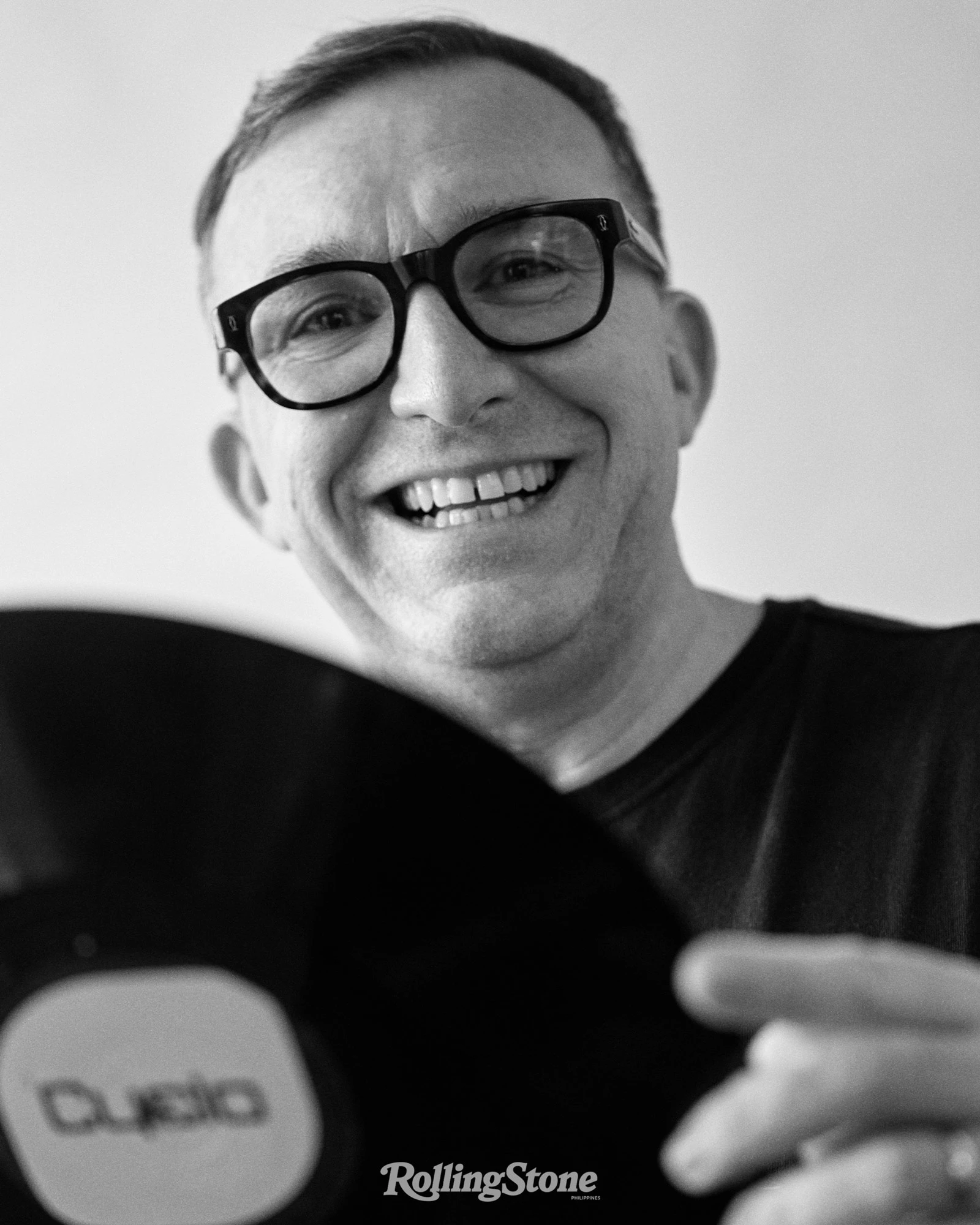
The only place to listen to those records are in the club or in the store. I mean, it’s one thing digging for music in a record store. But if you’re a DJ and you’re playing that record to thousands of people, it’s also a different thing. Obviously there was no internet, and it was a very new experience. I can see why it meant so much to you.
Yes, if you had access to [certain] records and you were able to play it, it means you were “somebody.” You had a style or whatever. You needed to spend hours, days, in record stores. You needed to be respected to get access to those records. It was really underground [in that way]. Sometimes, you can go to the DJ, and you can see the record label. But it’s like, how am I going to get this? No internet, no nothing.
How would you describe your sound as a DJ, without using genres as a way to describe it?
I think, you know, you cannot only have one face. You need to have different faces. [But] it depends. These days, house music sounds a little bit negative. But in my time, house music was so nice.
It’s still nice.
So, you have [a] pumping time at night. Then in the morning, the day after, or during the day — that is the time that you bring out the house. It’s more happy, more soulful. [But] there were not much house at that time in Spain. It was darker, more European. Whereas house, I think, was a bit more American, or English, and some German.
I’m curious to know about the time you started Club Montreal in Santander, the north of Spain.
Yes, in my town.
I started going out in the early 2000s here in Manila. It was a very Ibiza sound: Balearic house, very chill out, but you could still be in the club. And the sort of sound you describe in Spain as really dark through the night and more euphoric in the morning, I know that quite well. So, what were the differences between the scene in Ibiza, and where you were when you were starting the club?
Well, Ibiza was not very appealing to me.
Is it because it was commercial?
Yes, but I know people [who went]. I started going out in 1995, [but] the [most special] time of Ibiza for people was the late ‘80s. Ibiza is an island where you apparently have a very magical energy.
During the ‘90s, it started to develop into a place to go to in the summer. More commercial, more happy. But, you know, I have been to Ibiza two or three times and it was everything. So I think it would be unfair to tag it [as just commercial]. People who go for the party because [they] want to have a crazy time go to Ibiza. But when you finish that, you don’t care at all anymore.
What was it like running Club Montreal, especially in your 20s?
Well, it was difficult because when I decided to open the club, it was the last two years of college. I was studying marketing. I was around 22, 23.
But [even before then] I was already doing parties and I [had] a lot of followers. When we threw a party, it was between 200 to 700 people. My school was very business-oriented, and I wanted something creative. So when I finished school, I said, “I don’t want to do this. I want to look for more creativity.” So, me and my best friend, Fernando — we were [DJing] together and doing the parties. I was earning quite a lot of money, which I spent mostly on records.
We thought, “Why don’t we open a club?” So we looked for a [space] that had a license until 6 a.m. so everyone can really go. And when we opened, we did not do a major renovation. We had to ask for a loan at the bank. I think we were not ready to open.
It’s very hard to open a club.
So, the thing is — and that is where things start to get complicated — when you do a party every two weeks, you play whatever you want. You don’t have a mortgage or anything like that. When you have a club that has a lot of fixed expenses, you have to really survive. We started having problems with the neighbors because the sound went through the bases. The sound quality [in the club] was affected because it was disturbing [people], and the law in Spain is very severe. You have to follow.
That’s why we sold it. We couldn’t always play whatever we wanted to survive because there were not enough followers in Santander. It’s a small town. Sometimes we needed to play a bit more commercial, or things that were easier to understand for everybody. If not, we would have to close.
Did that annoy you?
Yes. [Laughs]
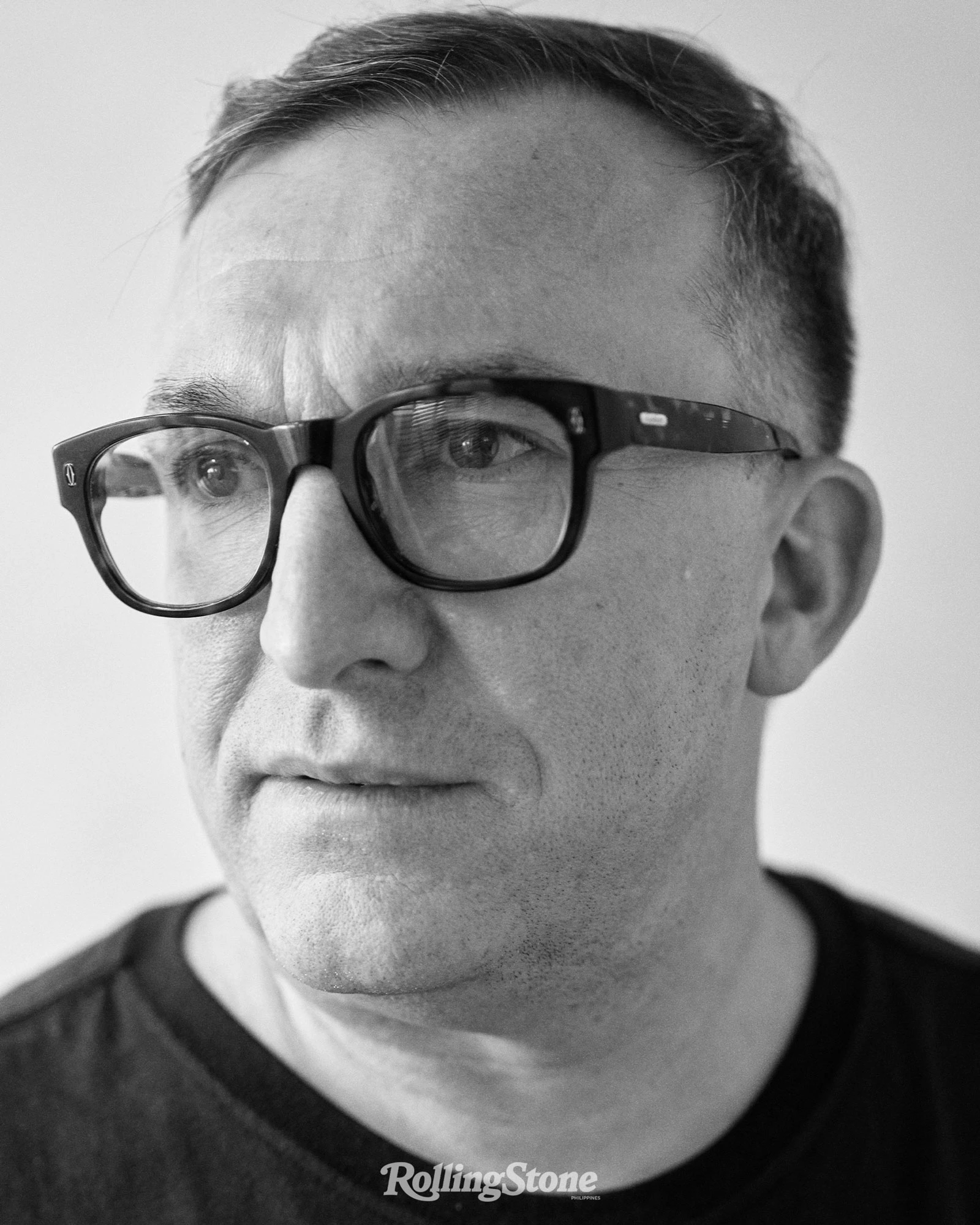
When did you start feeling pressure from the club to keep it open? Did you have a conversation with your partner, Fernando?
No, nobody had a conversation. We just did it. Nobody told me what I had to do. But we noticed that if we [made it] too personal [by playing what we wanted], the place would be empty. So we needed to balance. Sometimes we had international artists [then], maybe on Thursdays, we played more personal [favorites]. You wouldn’t have the pressure [of an audience], but you’d have less people. On Fridays and Saturdays, at some point of the night, we really had to balance. I mean, you will never lose yourself. Even if you were [servicing] more for the audience, the song [should] still mean something to you.
I can relate because, I think, in this dance and electronic music thing, we come into it very idealistic and we want to push the music that we want. But after you start DJing and organizing your own nights, there comes a point where you get hit by this thing of, “Why can’t I play the music I want to play?” You experienced that with the club by being faced with this idea of balance. How do you balance the thing you want to do with what is accepted by wider society?
At that time, you had no choice because you had to pay bills. It was actually a very difficult time. With the club, I ended up with depression. You have responsibilities, you have a loan, your family’s backing you up, you know? It’s not [like] I can walk away the next day. You cannot. You have to keep going.
I was going out with this girl for maybe five years already. The relationship started to deteriorate. We started to have problems because [of] complaints from the neighbors. We needed to do a complete sonorization, a professional engineer to fix those issues.
[We] needed to put in more money. If we wanted to keep operating, we needed to close down and remake the whole interior. We needed to invest so much money that we didn’t have at that time. I was, again, depressed [and] I didn’t like to go to the club anymore. I didn’t like to play anymore because it became hell. But you cannot run out. It’s not like, “Oh, I don’t like this,” and you walk away. No, no. It was so much responsibility and so many bills to pay.
But I was able to reset my life, and I became a chef. I was still playing. I was still engaged, but in a different way because I still had the feeling that [music] was that part of my life that brought me darkness. Right now, I spend between, say, 30 minutes to six hours everyday on music. It’s [become] a mental therapy [again]. It’s so important to me at this moment because it reminds me of the best in life. I think I’m a better DJ now than before.
In what way?
It’s the best version of myself, you know, as a human being, as a husband, as a leader of my team. I have been working [internally] to really be a better version of myself, because I have responsibilities: my team, my family, my daughter, my wife.
So I’m proud of who I am today in many ways. But, of course, it takes time. You have to work against yourself, you need to re-educate, and not lose who you are. I reconnected, and I think I do it in a very healthy way. The high comes from the connection with the crowd, and that particular energy, a moment. [It] brings [me] to one of my biggest loves in my life: music.
I would like to finish with something that I think is important to understand. Coming from 30 years of experience in electronic music, I think [it’s important to] see how it was built before. There are people who say, “No, it was better before.” I don’t think it’s better or worse, I think it’s different. But the reality is that, in the old times, or in the golden era, if you were really into electronic music, you’d be attacked as a drug addict, even if you didn’t do it. It was really seen as something that was not good. As a DJ and as a person who has also been on the dance floor many times, electronic music was a kind of high. It was dark. It was intense. It was difficult to really understand that music if you were [not] on something.
Right now, electronic music is much more fresh. It’s accepted and part of society. The productions are more understandable. So, I think we’re in a better age than before.
We are also in a very good time in the Philippines, and I think we should [keep] the energy that is happening now going. When I go to play, I don’t try to prove anything. I do it because I like it. If I feel that I’m being too hard [on the crowd], that I have been playing five, six tracks of very techno music and people are saying, “What the fuck is going on?” Or maybe [I’ve] disconnected and I [need to] play something a bit more warm, [I always remember] that I’m telling a story. I like my sets to tell a story. I’m very much interested in connecting with people.
That’s a great final quote.


